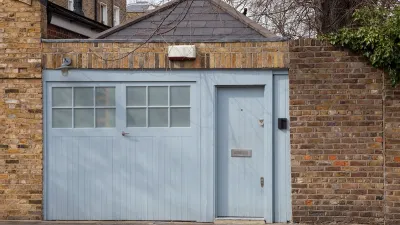A recently published white paper written by the Seattle Planning Commission calls on the city to follow in the footsteps of the city of Minneapolis and the state of Oregon.

Doug Trumm reports on a white paper published by the Seattle Planning Commission calling on the city to make dramatic changes to the city's zoning.
The commission's "Growth Strategy White Paper" builds on work begun with the commission's Neighborhoods for All report published last year. The paper makes an explicit call for Seattle to follow in the footsteps of Minneapolis, the state of Oregon, and Cancouver, British Columbia in legalizing three of four units per residential lot.
"Switching base zoning to triplexes or fourplexes will be viewed as revolutionary to many Seattleites," writes Trumm. "A draft recommendation of the Housing Affordability and Livability Agenda (HALA) report was scuttled for less. But other cities have led the way and shown it’s possible, and conditions in Seattle–including the city council–have changed."
Among the changes in Seattle listed by Trumm: continuously rising housing prices and uneven growth around the city. On that latter point, Trumm notes that the city's "urban villages have shouldered an incredible load when it comes to infill development despite representing a tiny fraction of the overall land." Also, writes Trumm, "[t]he planning commission notes a whopping 80% of Seattle’s housing growth over the past decade or so has been within Urban Villages."
FULL STORY: Seattle Planning Commission Urges City to Get Ambitious with Growth Strategy

Planetizen Federal Action Tracker
A weekly monitor of how Trump’s orders and actions are impacting planners and planning in America.

Maui's Vacation Rental Debate Turns Ugly
Verbal attacks, misinformation campaigns and fistfights plague a high-stakes debate to convert thousands of vacation rentals into long-term housing.

Restaurant Patios Were a Pandemic Win — Why Were They so Hard to Keep?
Social distancing requirements and changes in travel patterns prompted cities to pilot new uses for street and sidewalk space. Then it got complicated.

In California Battle of Housing vs. Environment, Housing Just Won
A new state law significantly limits the power of CEQA, an environmental review law that served as a powerful tool for blocking new development.

Boulder Eliminates Parking Minimums Citywide
Officials estimate the cost of building a single underground parking space at up to $100,000.

Orange County, Florida Adopts Largest US “Sprawl Repair” Code
The ‘Orange Code’ seeks to rectify decades of sprawl-inducing, car-oriented development.
Urban Design for Planners 1: Software Tools
This six-course series explores essential urban design concepts using open source software and equips planners with the tools they need to participate fully in the urban design process.
Planning for Universal Design
Learn the tools for implementing Universal Design in planning regulations.
Heyer Gruel & Associates PA
JM Goldson LLC
Custer County Colorado
City of Camden Redevelopment Agency
City of Astoria
Transportation Research & Education Center (TREC) at Portland State University
Jefferson Parish Government
Camden Redevelopment Agency
City of Claremont





























